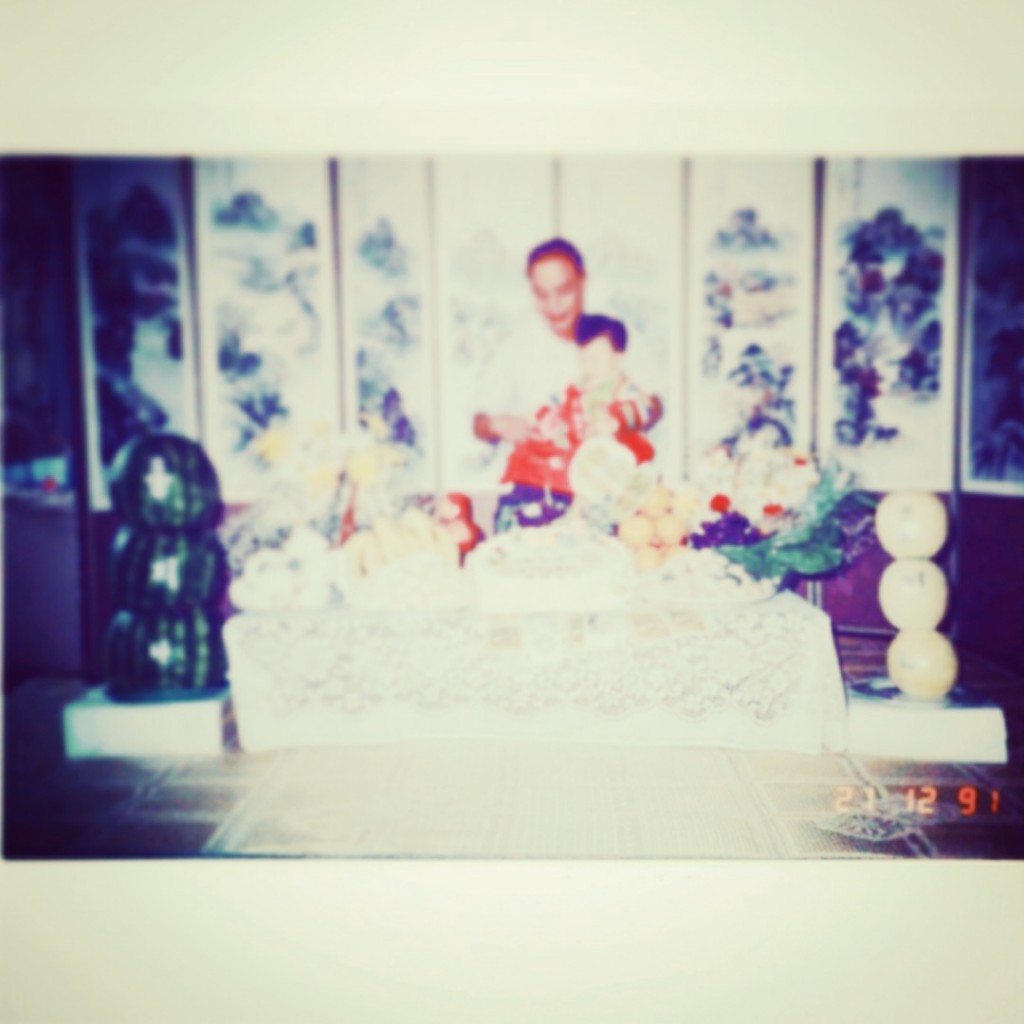
My paternal grandfather succumbed to dementia
at the age of eighty.
We hadn’t treated him any differently until one evening –
he ran out in the rain, and turned up at a police station
somewhere in Sydney’s Inner-West,
shivering and still in a state of forgetfulness.
And then the Elderspeak began.
I continue to converse with my haraboji
in a playful mix of jondaemal and banmal –
a common form of everyday speech among Koreans.
But it was in seeing painful interactions between my father and his father
that I realized there is no difference
between full-blown elderspeak and babytalk.
The polite yoh was soon dropped. Sentences shortened; indeed,
became fragmented.
Even in this, his daughter-in-law – my mother –
retained the respectful jondaemal, but spoke in a high, lilting sing-song
as though chattering away to a preschooler.
With abonim, Father, tacked on the end.
As an afterthought, perhaps.
A substitute yoh, perhaps.
I sensed my grandfather glaring at them,
or turning his gaze away with petulant indifference and scorn,
especially on occasions when dad would repeatedly
point at random family members and ask:
‘who’s this? Father?
Who’s this?
What’s their name?’
He couldn’t remember.
He’d lost the name momentarily in the fog of his ageing mind.
We knew it; he knew it.
But that wasn’t to say he’d forgotten who it was,
simply the name they went by.
And he couldn’t articulate himself well enough
to explain that that was the case.
There are times when his mind is so lucid it surprises us all.
Once, when we visit, he sheds tears of joy when we tell him
I’m to graduate with First Class Honours.
He again, sheds tears,
when we tell him I’ll be going on to do a PhD.
‘Baksa,’ he bawls. (Doctorate!)
We are an Asian family after all.
Grades matter, and shit.
Even to wayward grandfathers.
I am his dynasty. His legacy.
His what do you call it in Korean?
On our way out, mum whispers:
‘we’ve got to stop giving him this good news.
It might set off a heart attack.’
In the background,
Dad’s still going on, with his unstoppable
Elderspeak:
Father, we’ll come again.
Soon. Visit. OK?
Then again, I’m not so sure it is elderspeak.
Dad is a man of few words.
But there he goes again:
What’s my name? Father?
What’s my name?
Who am I?
Who am I?
—
haraboji – Grandpa
jondaemal and banmal – Formal and informal speech, respectively.
yoh – 요, while not a word in itself, is a marker of formal speech in Korean, as it can be seen on the end of verb formations used in jondaemal.
